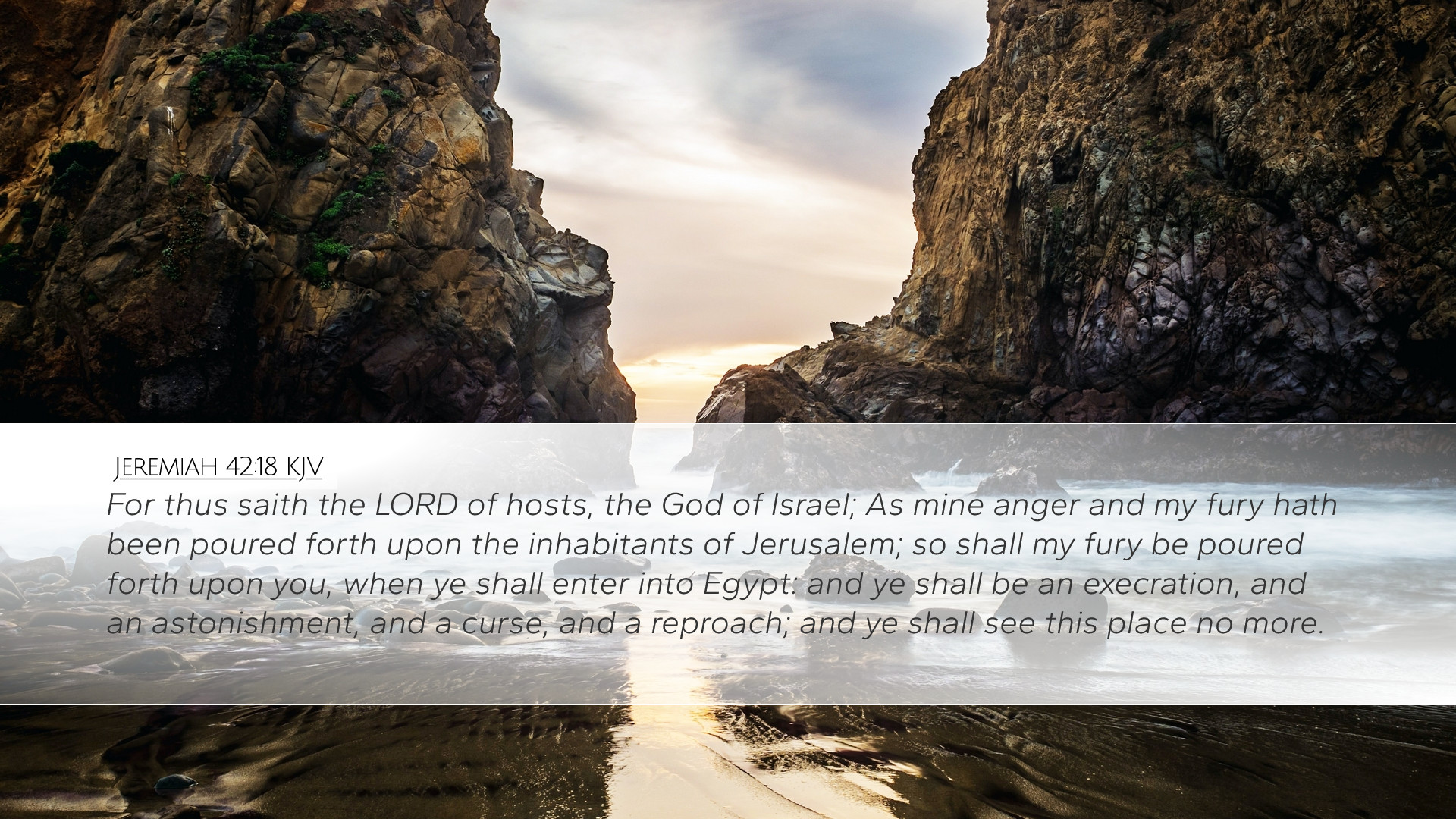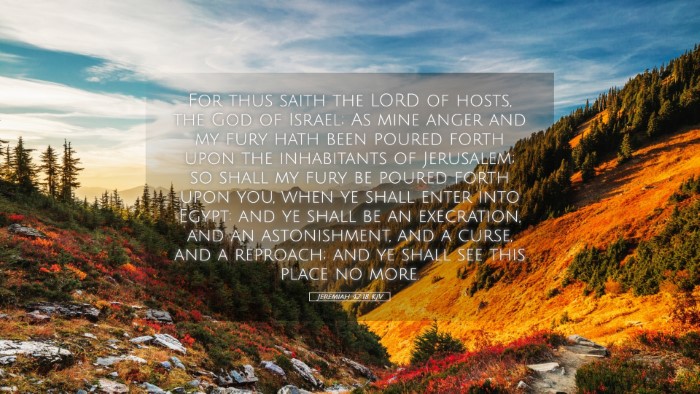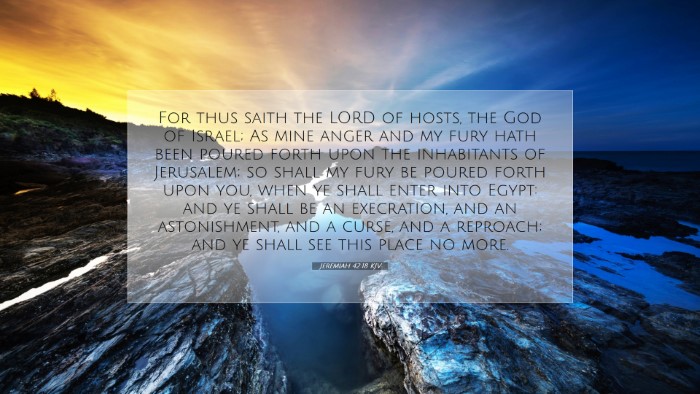Commentary on Jeremiah 42:18
Verse Context: Jeremiah 42:18 states, "For thus says the LORD of hosts, the God of Israel: If you wholly set your face to enter Egypt and go to dwell there, then the sword that you feared shall overtake you there in the land of Egypt, and the famine of which you were afraid shall follow close after you there in Egypt, and there you shall die."
Introduction
This verse serves as a critical juncture within the book of Jeremiah, presenting a divine warning to the remnant of Judah. The context emphasizes the dire choices faced by the people following the destruction of Jerusalem. Commentators agree that this moment is ripe for theological insight regarding obedience, divine judgment, and the human condition.
Historical Context
The historical backdrop of Jeremiah 42 involves the Jewish remnant’s decision-making process after the Babylonian conquest of Jerusalem. Following the fall of their city, individuals, including Johanan and other leaders, approach Jeremiah seeking divine guidance on whether to flee to Egypt for safety. Their previous experiences with turmoil and fear of Babylonian retaliation weigh heavily on their minds.
Analysis of Key Themes
-
Divine Sovereignty
Matthew Henry emphasizes that God’s sovereignty is paramount in guiding the decisions made by His people. This verse underscores that irrespective of their plans, God holds ultimate authority and will ensure His purposes prevail. The Lord's warnings highlight that fleeing to Egypt is futile and contrary to the divine will.
-
Judgment and Consequences
Albert Barnes points out that the threats of the sword and famine signify God’s judgment upon those who disobey His command. This theme reveals the principle that disobedience leads to further suffering. The consequences of abandoning God's path are stark; they reflect a divine response to human fears that are misaligned with faith.
-
The Human Condition
Adam Clarke elaborates that this narrative reflects the core struggle of humanity—choosing between trusting God and succumbing to fear. The people's desire to escape danger is juxtaposed with their refusal to follow God's guidance. This reveals a deeper theological insight into the human tendency to prioritize immediate safety over spiritual fidelity.
Theological Implications
-
Faithfulness in Adversity
This passage invokes a critical examination of faithfulness amidst turmoil. The inclination to seek refuge in Egypt represents a lack of trust in God's provision and protection. The lesson here is that believers are called to remain steadfast, even when circumstances appear dire.
-
The Call to Obedience
Jeremiah 42:18 emphasizes the importance of adhering to God’s directives. The consequences outlined serve to remind believers that listening and responding to God is integral to receiving His blessings. Disobedience, as seen in the text, leads only to despair and ruin.
Applications for Today
This verse has profound implications for believers today. In a world filled with uncertainty and temptation to seek refuge outside of divine instruction, the charge to trust in God's sovereignty remains ever relevant. Pastoral leaders, theologians, and students of the Word are encouraged to reflect on the following:
- Trust in God's Plan: Believers are called to trust that God’s plans are for their good, even when facing frightening or seemingly insurmountable situations.
- Obedience Over Escape: The focus should not solely be on escaping difficult realities but rather on remaining obedient to God's instructions in the midst of those realities.
- Community Discernment: Just as the remnant sought guidance collectively, modern-day believers must seek wisdom within their faith communities, relying on prayer and scriptural teachings to discern God’s guidance.
Conclusion
Jeremiah 42:18 serves as a powerful reminder of God's unyielding sovereignty and the necessity of faithfulness in the face of fear. Commentators emphasize the intrinsic value in adhering to divine guidance, and the consequences of failing to do so are illustrated starkly in this warning. Pastors, students, and theologians are invited to engage deeply with this text, drawing lessons that transcend time and context, as they seek to live lives marked by faith and obedience to God.


